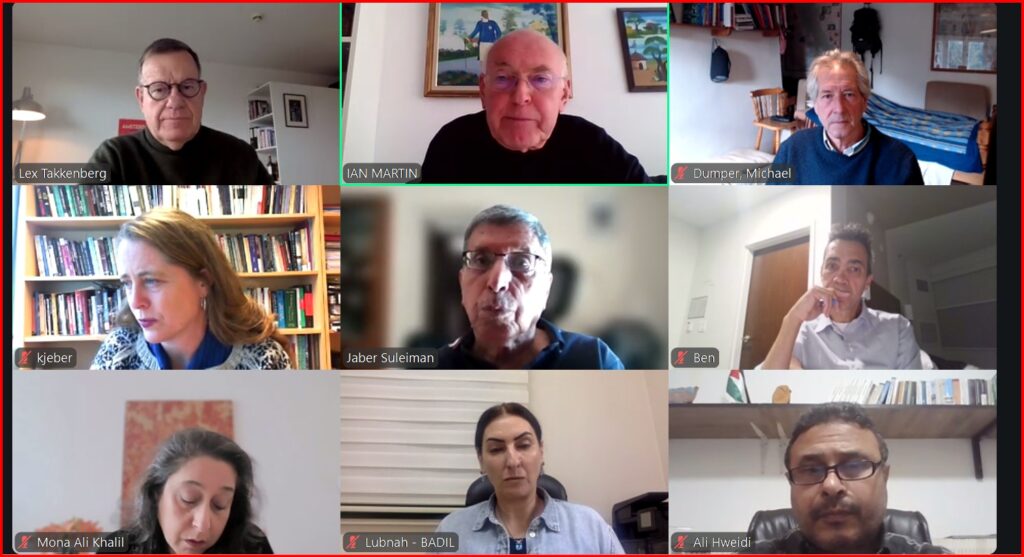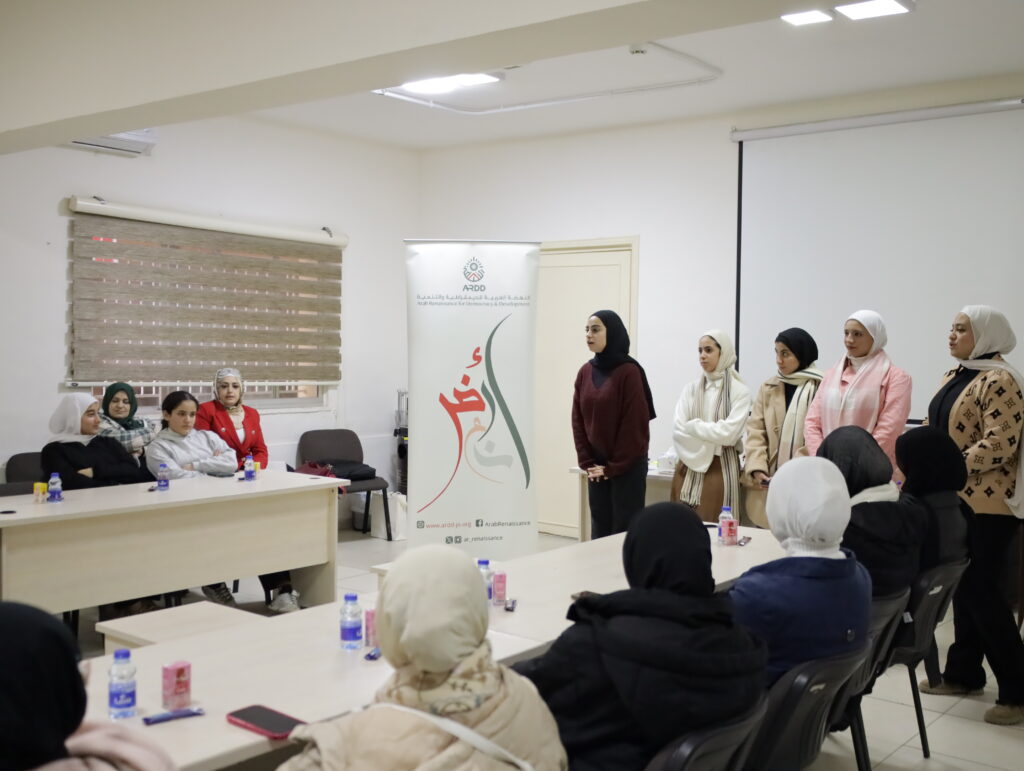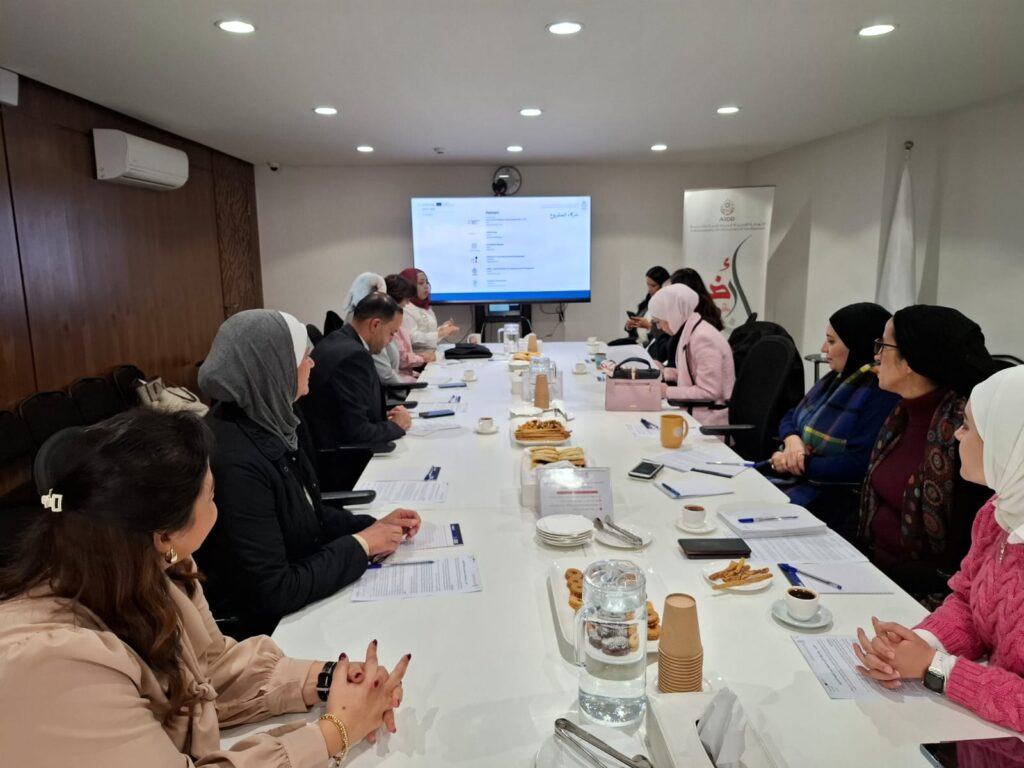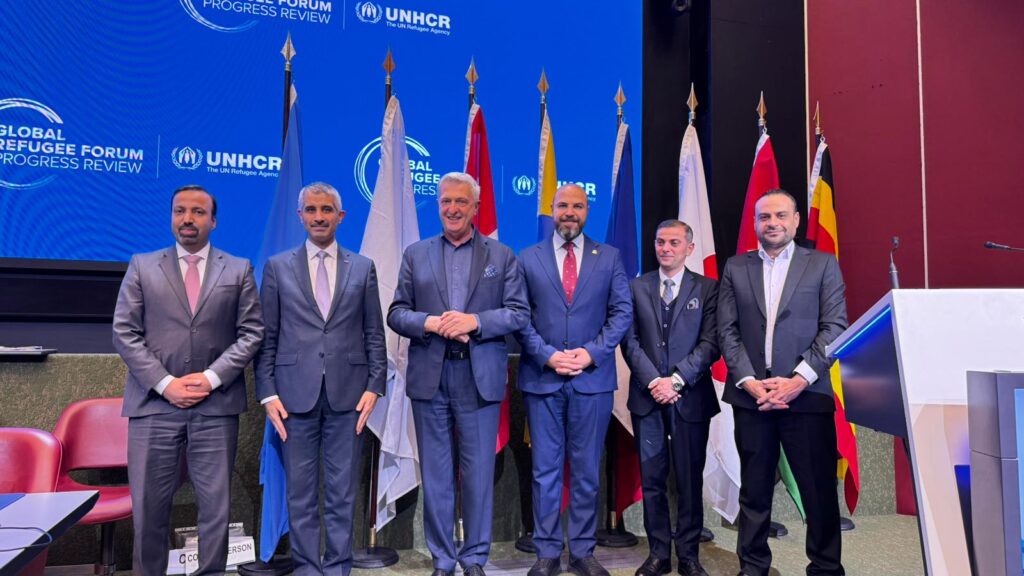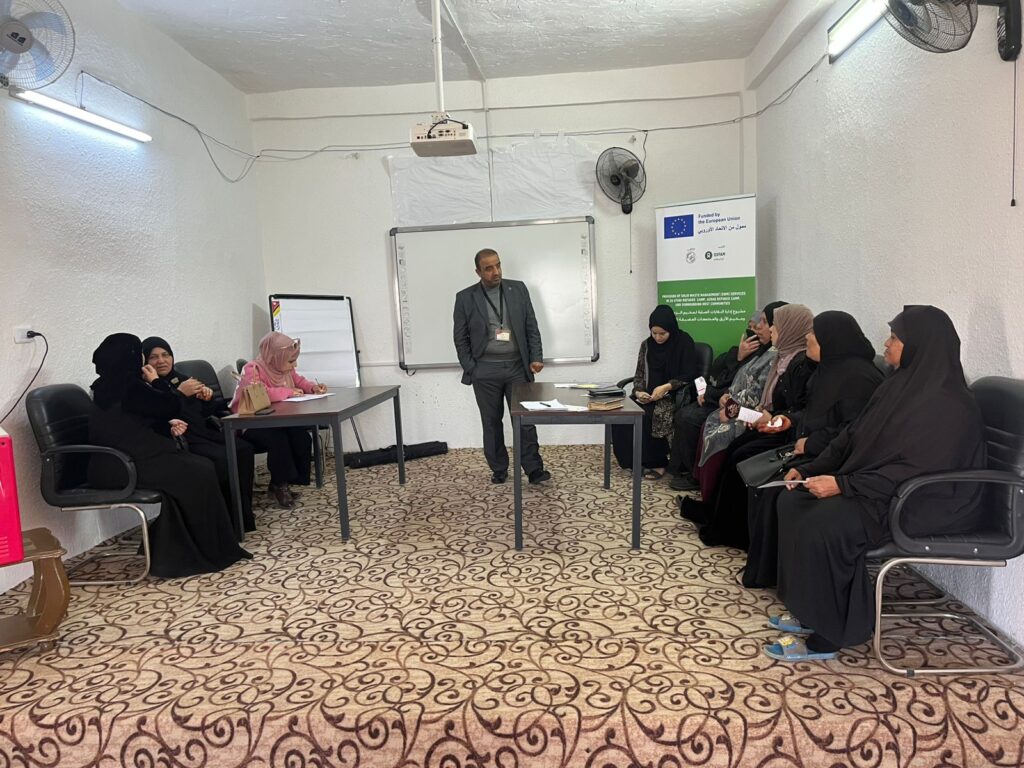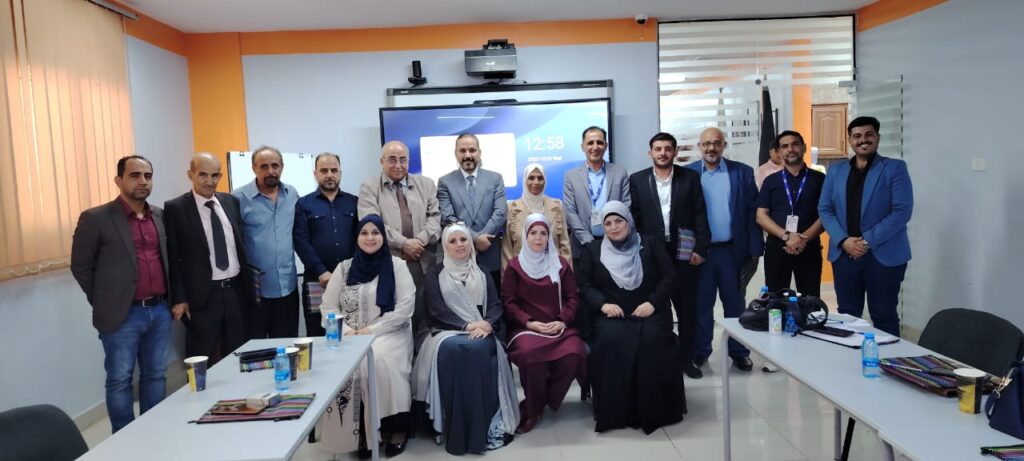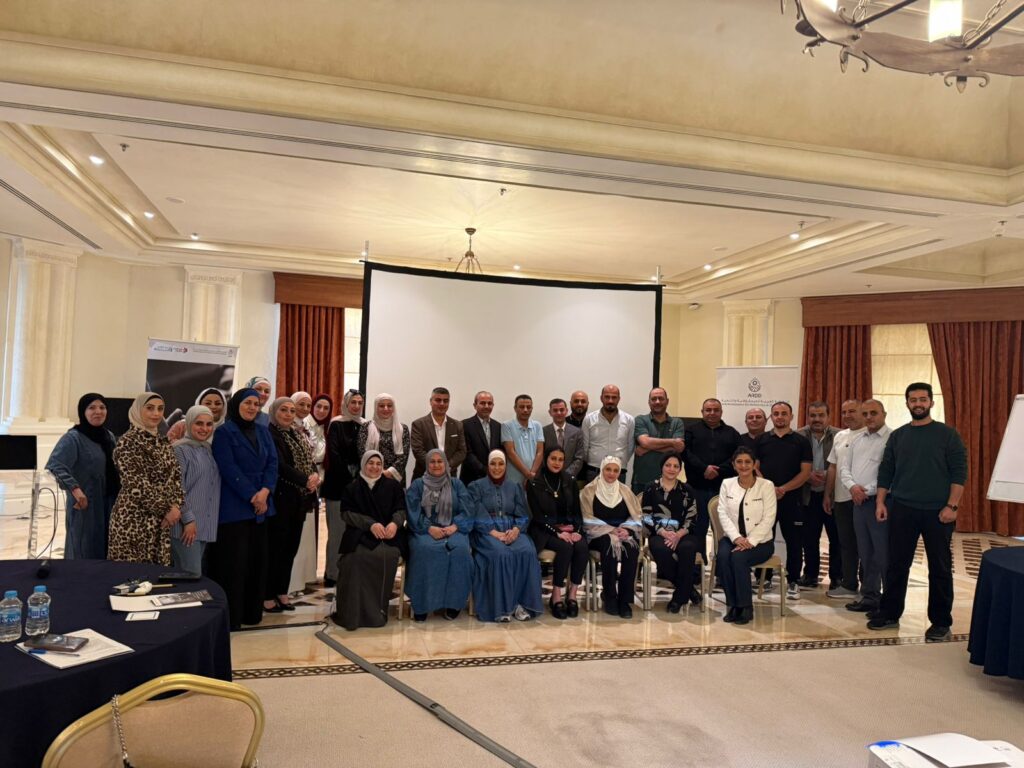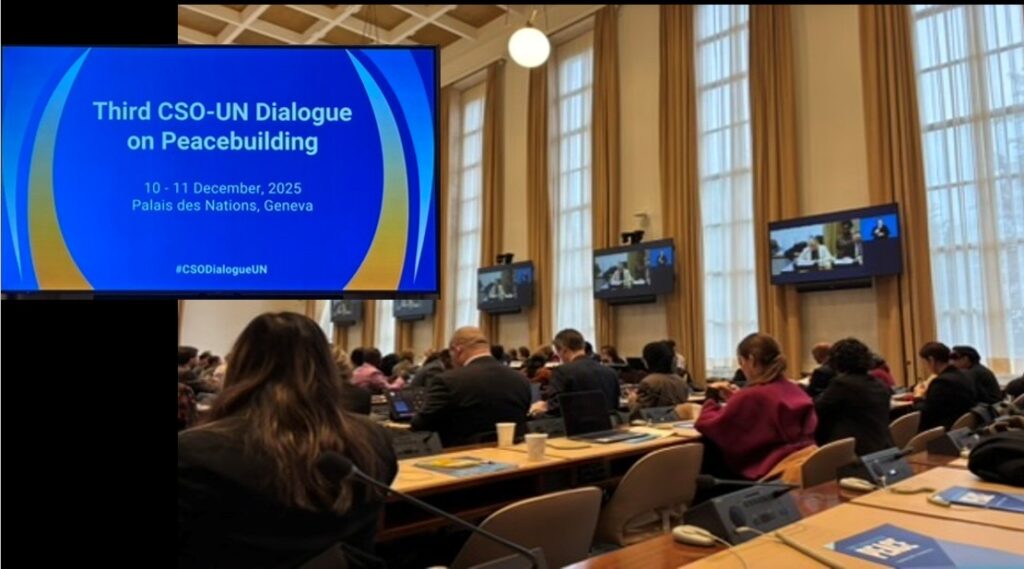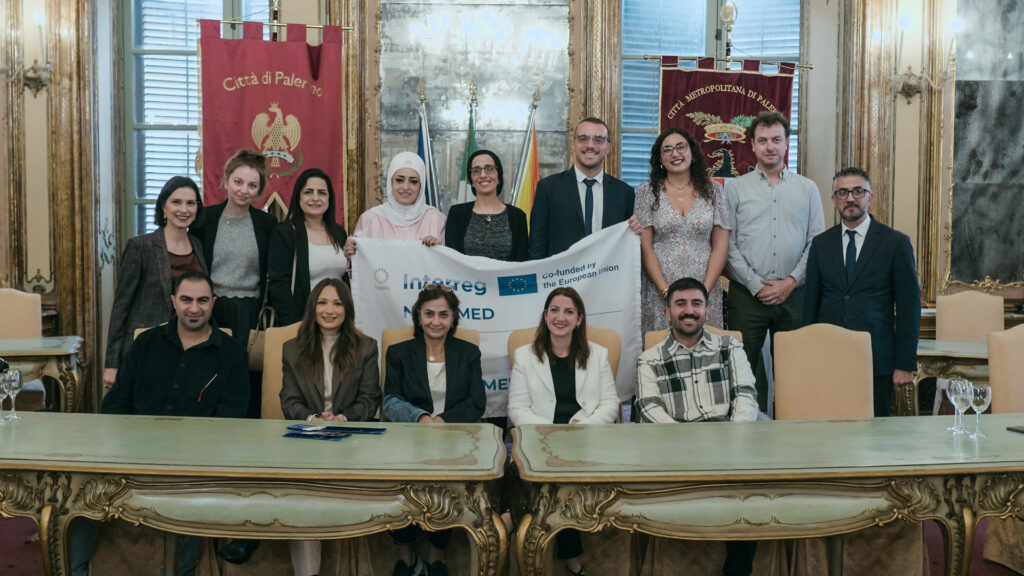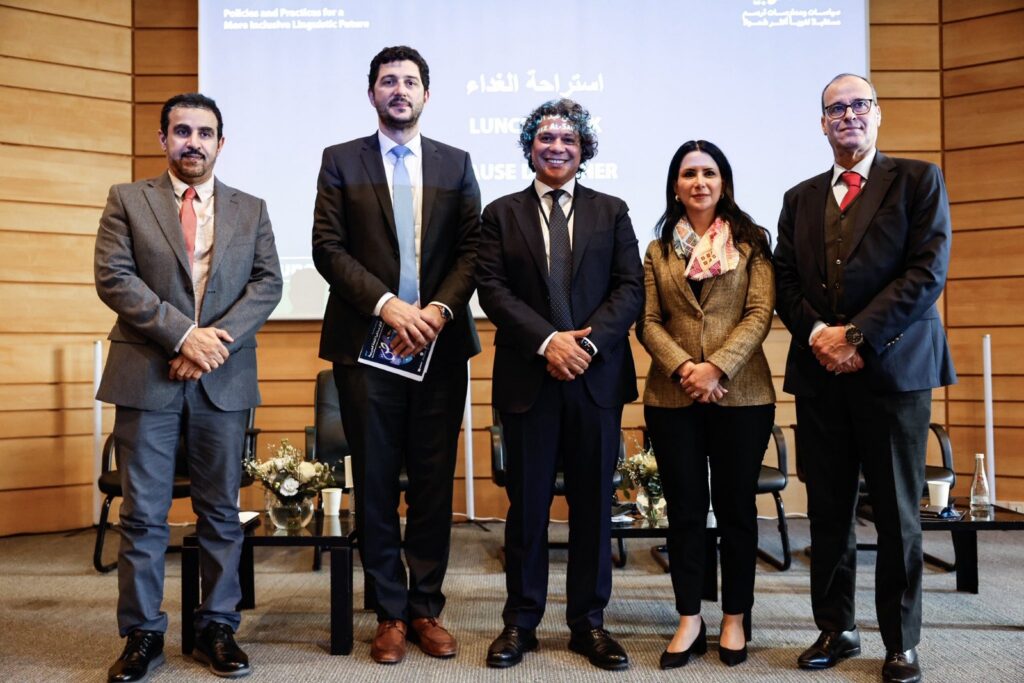The Question of Palestine Program at the Renaissance Strategic Center (RSC) of the Arab Renaissance for Democracy and Development (ARDD) convened a high-level webinar on the 2025 Strategic Assessment of the United Nations Relief and Works Agency for Palestine Refugees in the Near East (UNRWA) on Monday, 27 October 2025, commissioned by the UN Secretary-General within the framework of UN80. The event examined the findings of the Strategic Assessment and reflected on UNRWA’s role, mandate, and sustainability amid mounting political and financial pressures.
The full Strategic Assessment Report can be accessed here, and the Arabic translation of the report, as prepared by ARDD, is available here.
The webinar brought together the author of the Strategic Assessment, Ian Martin, along with experts from UNRWA, civil society, and academia, including Ben Majekodunmi (Chief of Staff, UNRWA), Mona Ali Khalil (Founder and CEO, MAK Law International), Lubnah Shomali (Advocacy Manager, BADIL Resource Center for Palestinian Residency and Refugee Rights), Jaber Suleiman (Consultant and Coordinator, Lebanese Palestinian Dialogue Forum; Co-Founder, Aidoun Refugee Rights Center), Mick Dumper (Professor Emeritus in Middle East Politics, University of Exeter), and Kjersti Berg (Associate Professor, NLA University College, Bergen). The discussion was moderated by Lex Takkenberg, Senior Advisor on the Question of Palestine at ARDD.
Participants reaffirmed that UNRWA remains an indispensable pillar of the international community’s permanent responsibility toward Palestinian refugees, providing essential services to more than six million refugees and registered persons across its five fields of operation. Despite chronic funding shortages and growing operational constraints, the agency continues to adapt and function under exceptionally difficult conditions.
Speakers underscored the urgent need to stabilize UNRWA’s financial situation, framing this not only as a humanitarian necessity but also as a test of the international community’s collective commitment to the rights and dignity of Palestinian refugees.
The discussion emphasized that any future approach to UNRWA must remain anchored in international law and the mandates of the UN General Assembly, particularly Resolutions 194 (1948) and 302 (1949), which uphold the rights to return, restitution, and compensation. Participants cautioned against reducing UNRWA to a humanitarian or managerial burden, highlighting instead its role as a custodian of refugee rights and a mechanism through which the UN exercises its enduring responsibility toward the Palestinian people. The importance of enhancing refugee participation and community engagement in shaping the agency’s priorities and reforms was also stressed, ensuring accountability to those served while safeguarding neutrality and independence.
While the Strategic Assessment was acknowledged as a constructive and pragmatic contribution, mapping potential future scenarios for UNRWA, participants agreed that these scenarios should be seen as warnings of possible outcomes if the international community fails to act. They cautioned that any scenario involving the agency’s gradual or disorderly collapse would deepen the humanitarian crisis and erode the legal and political framework protecting Palestinian refugees.
Participants further rejected proposals to transfer UNRWA’s responsibilities to host states or to narrow its mandate, noting that such approaches would be unfeasible and unjust given the fragile regional context. Instead, consensus emerged around the need to reinforce UNRWA’s institutional resilience, restore predictable international funding, and preserve the international character of its mandate as a UN body entrusted with upholding Palestinian refugee rights.
The discussion drew on the BADIL Position Paper “Engineered Collapse”—which deconstructs the four proposed scenarios, examines their implications, and outlines rights-based alternatives for safeguarding UNRWA’s future—as well as Mona Ali Khalil’s Op-Ed in Pass Blue. For additional background on BADIL’s publications, visit its Position Papers page.
Participants concluded that while institutional reforms are important, UNRWA’s sustainability ultimately depends on political will and predictable financing. They also raised concerns about the lack of accountability for ongoing violations against UNRWA facilities and personnel, calling for stronger mechanisms to protect UN operations and ensure compliance with international humanitarian law.
The event closed with a strong collective message:
UNRWA is not collapsing—but it stands at a critical juncture requiring urgent, coordinated action from member states and donors.
Governments were urged to translate their political commitments into concrete financial support, particularly in light of the recent ICJ advisory opinion reaffirming states’ legal obligations to sustain the agency’s work.
Upcoming Event
Monday, 17 November 2025: ARDD’s Question of Palestine Programme and Law for Palestine (L4P) will co-host a hybrid event at ARDD’s premises on the ICJ’s Advisory Opinion on the UNRWA Ban and Israel’s Obligations in the Occupied Palestinian Territory (OPT).

